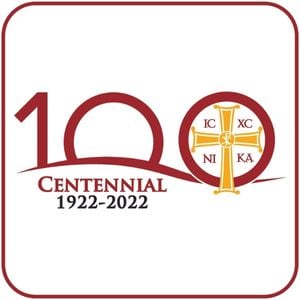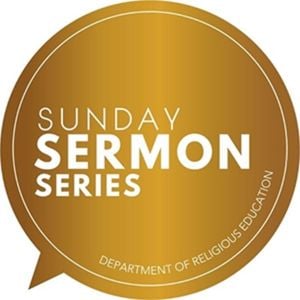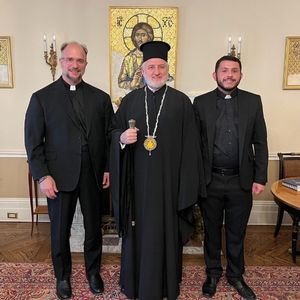The Nativity of Our Lord and Savior, Jesus Christ
The incomprehensible and inexplicable Nativity of Christ came to pass when Herod the Great was reigning in Judea; the latter was an Ascalonite on his fathers's side and an Idumean on his mother's. He was in every way foreign to the royal line of David; rather, he had received his authority from the Roman emperors, and had ruled tyrannically over the Jewish people for some thirty-three years. The tribe of Judah, which had reigned of old, was deprived of its rights and stripped of all rule and authority. Such was the condition of the Jews when the awaited Messiah was born, and truly thus was fulfilled the prophecy which the Patriarch Jacob had spoken 1,807 years before: "A ruler shall not fail from Judah, nor a prince from his loins, until there come the things stored up for him; and he is the expectation of the nations" (Gen.49:10).
Thus, our Saviour was born in Bethlehem, a city of Judea, whither Joseph had come from Nazareth of Galilee, taking Mary his betrothed, who was great with child, that, according to the decree issued in those days by the Emperor Augustus, they might be registered in the census of those subject to Rome. Therefore, when the time came for the Virgin to give birth, and since because of the great multitude there was no place in the inn, the Virgin's circumstance constrained them to enter a cave which was near Bethlehem. Having as shelter a stable of irrational beasts, she gave birth there, and swaddled the Infant and laid Him in the manger (Luke 2:1-7). From this, the tradition has come down to us that when Christ was born He lay between two animals, an ox and an ass, that the words of the Prophets might be fulfilled: "Between two living creatures shalt Thou be known" (Abbacum 3:2), and "The ox knoweth his owner and the ass his master's crib" (Esaias 1: 3).
But while the earth gave the new-born Saviour such a humble reception, Heaven on high celebrated majestically His world-saving coming. A wondrous star, shining with uncommon brightness and following a strange course, led Magi from the East to Bethlehem to worship the new-born King. Certain shepherds who were in the area of Bethlehem, who kept watch while tending their sheep, were suddenly surrounded by an extraordinary light, and they saw before them an Angel who proclaimed to them the good tidings of the Lord's joyous Nativity. And straightway, together with this Angel, they beheld and heard a whole host of the Heavenly Powers praising God and saying: "Glory to God in the highest, and on earth peace, good will towards men" (Luke 2:8-14).









 Tώρα που είστε όλοι στα σπίτια σας και ετοιμάζεστε να εορτάσετε τα Χριστούγεννα με τις οικογένειες και τους φίλους σας, θα ήθελα να σας ζητήσω να αφιερώσετε λίγο από τον χρόνο σας και να στρέψετε τη σκέψη σας προς όλους εκείνους, των οποίων οι ζωές καταστράφηκαν από τη βία και τον πόλεμο.
Tώρα που είστε όλοι στα σπίτια σας και ετοιμάζεστε να εορτάσετε τα Χριστούγεννα με τις οικογένειες και τους φίλους σας, θα ήθελα να σας ζητήσω να αφιερώσετε λίγο από τον χρόνο σας και να στρέψετε τη σκέψη σας προς όλους εκείνους, των οποίων οι ζωές καταστράφηκαν από τη βία και τον πόλεμο.
 This week, find insights about the upcoming Gospel reading, where we read about Jesus’ Incarnation and Birth.
This week, find insights about the upcoming Gospel reading, where we read about Jesus’ Incarnation and Birth.
 His Eminence Archbishop Elpidophoros of America welcomed Rev. Deacon Petros Gomez to the Archdiocese, who will serve as Deacon to the Archbishop succeeding the V. Rev Archimandrite Michael Giavris, effective immediately. Also present at the meeting was Chancellor of the Archdiocesan District Protopresbyter of the Ecumenical Throne Fr. Elias Villis.
His Eminence Archbishop Elpidophoros of America welcomed Rev. Deacon Petros Gomez to the Archdiocese, who will serve as Deacon to the Archbishop succeeding the V. Rev Archimandrite Michael Giavris, effective immediately. Also present at the meeting was Chancellor of the Archdiocesan District Protopresbyter of the Ecumenical Throne Fr. Elias Villis.
 His Eminence Archbishop Elpidophoros of America today welcomed Rev. Protopresbyter Milan Sturgis to the Archdiocese Headquarters.
His Eminence Archbishop Elpidophoros of America today welcomed Rev. Protopresbyter Milan Sturgis to the Archdiocese Headquarters.
 Begin the 2023 new year with the cherished vasilopita tradition with a beautiful gold-plated coin from Orthodox Marketplace. Vasilopita is the traditional Greek cake or pita served for New Year to celebrate the life of Saint Basil the Great.
Begin the 2023 new year with the cherished vasilopita tradition with a beautiful gold-plated coin from Orthodox Marketplace. Vasilopita is the traditional Greek cake or pita served for New Year to celebrate the life of Saint Basil the Great.